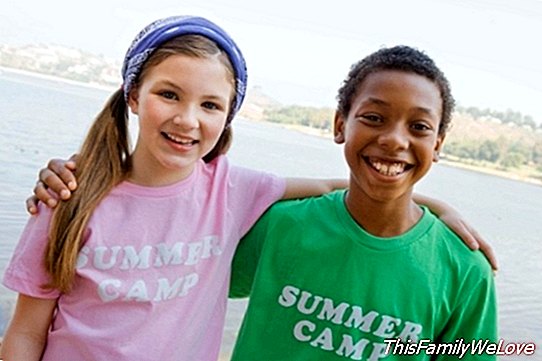Camps: 8 keys to know if children are prepared

When parents work and children have vacations, it is time to strengthen our creativity to find an adequate plan for them in which they not only spend time, but also learn and enjoy.
Is it too early to go camping?
Grandparents are the generalized alternative, for those lucky enough to be able to count on her close and available, but it is not always possible for the family to solve the "hurry" all summer.
That is why many parents consider summer camps outside the home. This allows children to have a good time, enjoy a different environment and learn new things far from the big city.
But, then, parents always ask themselves the same questions: At what age can I send the children to a camp outside the home? How to know if you are prepared or you will miss us too much?
Although the camps outside the home have been accepting children from 8 years onwards, the offer of summer camps now begins from 3 years old. It may seem too early, but considering some aspects, 3-year-olds will enjoy it as well as the older ones.
8 keys to send children to a camp
Here we give you a few guidelines to not rush, or leave it too far ahead:
1. The most important thing of all is the child's autonomy. If the child is autonomous enough to do certain things without help, it's time to start thinking about it. If the diaper stage is completely passed, even the night stage, you can go to the bathroom alone and you can more or less get dressed and shower without much help, it's time to think about a camp.
2. The first people who must be 100% convinced that the camp is the best option are the parents. It is always difficult to be away from them the first time, but if even knowing this you do not believe that you can rest assured that your little one sleeps several days in a row, then you should wait. Not so much for the child as for you. The child would notice you insecure in the previous days and surely you would get nervousness. If you think it is the best option and you feel ready for separation, go ahead!
3. Ask the child if he / she wants to do all the things proposed by the camp what interests you Make it clear that he will go by himself, but do not put too much emphasis on this aspect. That would determine his response. What child wants to be away from their parents? But, on the other hand, what child would not want to spend the day playing with new friends?
4. If you are among several offers, raise it to him, Teach photos and help you decide (within a limit, always on your previous selections).
5. Once the camp is chosen, keep him informed (although not too much in advance) of what he will do and what the organizers are telling you. Make him a participant in the decision.
6. If a meeting is organized, it is good that you go with the child. Some camp organizers encourage children to go to previous meetings to see their classmates, monitors, etc.
7. If you can visit the facilities previously, It will also be a point in favor of the child because it will not reach a completely unknown environment.
8. Some children are a little more shy than others. In these cases, it will be good to go with a friend, although, according to the camp organizers, that only helps in the first moments. Little by little all the children take confidence and having or not having a friend who knew each other in advance is not essential after the first few hours.
Diana Martín
More information about summer camps on the blog Mom has a Plan




